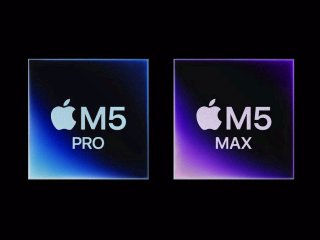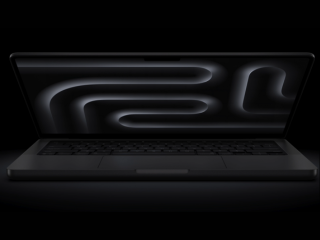- Home
- Laptops
- Laptops News
- Apple Rumoured to have ARM based Macs in Advanced Stage of Development
Apple Rumoured to have ARM-based Macs in Advanced Stage of Development
By Jamshed Avari | Updated: 26 May 2014 11:54 IST

Click Here to Add Gadgets360 As A Trusted Source

Advertisement
It has long been speculated that Apple has a keen interest in transitioning away from the Intel processors and architecture that currently power its entire Mac lineup in favour of ARM-based chips that it could develop itself. Apple would have to be extremely confident of its processor design capabilities and the strength of its customer base in order to make such a drastic transition, and it now appears that things might be progressing more quickly than previously thought.
French website MacBidouille is the source of a report (translated to English here) that cites a known and trusted source who claims that prototype Macs in three form factors are in an advanced stage of development - a thin notebook, desktop all-in-one and mini desktop; supposedly equivalent to today's MacBook Air, iMac and Mac mini. Each of these would have a new keyboard that incorporates a large Magic Trackpad for gesture-based control.
The website describes the purported machines as having "4 or 8 quad-core ARM64 processors". Apple's A7 System-on-a-Chip (SoC was a pioneering example of the 64-bit ARM architecture when it debuted inside the iPhone 5s last year, and the company is widely expected to introduce a much-improved A8 in the second half of this year.
The rumour excludes a Mac Pro equivalent, which would line up with the known limitations and use cases of ARM-based processors. Apple's professional audience would also demand compatibility with existing software and would be the most difficult to transition.
MacBidouille and 9to5mac speculate that Apple's primary concern is that the transition would fundamentally change the Mac lineup and confuse customers, which could be "disastrous" in the market. Apple would have to expend significant effort in ensuring broad software compatibility in order to minimise disruption to end users.
It is also possible that the purported new products might not replace existing Macs, but form a whole new product line to complement them. Such products might run iOS, which is already designed for the ARM architecture. These would offer users extraordinarily long battery life and access to a vast library of iOS apps, while X86-based Macs could continue to be available for those who need them.
Current Intel-based Macs can run a huge library of software, partly due to a common architectural basis with Windows-based PCs. Apple's transition from the PowerPC architecture to X86 in 2006 was rocky, but ultimately well received because of the immediately apparent performance gains, adequate notice for software developers to create compatible versions of their software in advance, and official compatibility with Windows.
Apple had been secretly working on an X86-native version of its OS X operating system, and there is no reason to doubt that an ARM-native version could also be in the works.
French website MacBidouille is the source of a report (translated to English here) that cites a known and trusted source who claims that prototype Macs in three form factors are in an advanced stage of development - a thin notebook, desktop all-in-one and mini desktop; supposedly equivalent to today's MacBook Air, iMac and Mac mini. Each of these would have a new keyboard that incorporates a large Magic Trackpad for gesture-based control.
The website describes the purported machines as having "4 or 8 quad-core ARM64 processors". Apple's A7 System-on-a-Chip (SoC was a pioneering example of the 64-bit ARM architecture when it debuted inside the iPhone 5s last year, and the company is widely expected to introduce a much-improved A8 in the second half of this year.
The rumour excludes a Mac Pro equivalent, which would line up with the known limitations and use cases of ARM-based processors. Apple's professional audience would also demand compatibility with existing software and would be the most difficult to transition.
MacBidouille and 9to5mac speculate that Apple's primary concern is that the transition would fundamentally change the Mac lineup and confuse customers, which could be "disastrous" in the market. Apple would have to expend significant effort in ensuring broad software compatibility in order to minimise disruption to end users.
It is also possible that the purported new products might not replace existing Macs, but form a whole new product line to complement them. Such products might run iOS, which is already designed for the ARM architecture. These would offer users extraordinarily long battery life and access to a vast library of iOS apps, while X86-based Macs could continue to be available for those who need them.
Current Intel-based Macs can run a huge library of software, partly due to a common architectural basis with Windows-based PCs. Apple's transition from the PowerPC architecture to X86 in 2006 was rocky, but ultimately well received because of the immediately apparent performance gains, adequate notice for software developers to create compatible versions of their software in advance, and official compatibility with Windows.
Apple had been secretly working on an X86-native version of its OS X operating system, and there is no reason to doubt that an ARM-native version could also be in the works.
Comments
For details of the latest launches and news from Samsung, Xiaomi, Realme, OnePlus, Oppo and other companies at the Mobile World Congress in Barcelona, visit our MWC 2026 hub.
Related Stories
Popular on Gadgets
- Samsung Galaxy Unpacked 2026
- iPhone 17 Pro Max
- ChatGPT
- iOS 26
- Laptop Under 50000
- Smartwatch Under 10000
- Apple Vision Pro
- Oneplus 12
- OnePlus Nord CE 3 Lite 5G
- iPhone 13
- Xiaomi 14 Pro
- Oppo Find N3
- Tecno Spark Go (2023)
- Realme V30
- Best Phones Under 25000
- Samsung Galaxy S24 Series
- Cryptocurrency
- iQoo 12
- Samsung Galaxy S24 Ultra
- Giottus
- Samsung Galaxy Z Flip 5
- Apple 'Scary Fast'
- Housefull 5
- GoPro Hero 12 Black Review
- Invincible Season 2
- JioGlass
- HD Ready TV
- Latest Mobile Phones
- Compare Phones
Latest Gadgets
- Apple iPhone 17e
- AI+ Pulse 2
- Motorola Razr Fold
- Honor Magic V6
- Leica Leitzphone
- Samsung Galaxy S26+
- Samsung Galaxy S26 Ultra
- Samsung Galaxy S26
- MacBook Pro 16-Inch (M5 Max, 2026)
- MacBook Pro 16-Inch (M5 Pro, 2026)
- Apple iPad Air 13-Inch (2026) Wi-Fi + Cellular
- Apple iPad Air 13-Inch (2026) Wi-Fi
- Huawei Watch GT Runner 2
- Amazfit Active 3 Premium
- Xiaomi QLED TV X Pro 75
- Haier H5E Series
- Asus ROG Ally
- Nintendo Switch Lite
- Haier 1.6 Ton 5 Star Inverter Split AC (HSU19G-MZAID5BN-INV)
- Haier 1.6 Ton 5 Star Inverter Split AC (HSU19G-MZAIM5BN-INV)
© Copyright Red Pixels Ventures Limited 2026. All rights reserved.

















